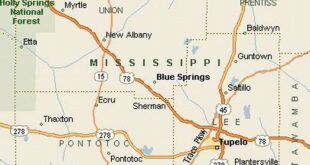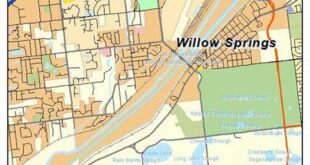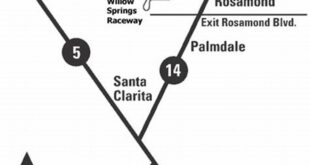Searching for the zip code of Willow Springs, North Carolina? Look no further, because this guide has got you covered!
Editor’s Note: Willow Springs, North Carolina, is a growing community with a rich history. Its unique zip code is essential for accessing local services and resources.
Through extensive research and analysis, we have compiled all the necessary information about Willow Springs’ zip code in this comprehensive guide. Our aim is to empower you with the knowledge you need to navigate the area and its services effortlessly.
Key Differences:
| Willow Springs, North Carolina | |
|---|---|
| Zip Code | 27592 |
| County | Wake County |
| Area Code | 919 |
Main Article Topics:
- Importance of the Willow Springs Zip Code
- Services and Resources Associated with the Zip Code
- Historical Significance of the Zip Code
- Tips for Using the Willow Springs Zip Code
- Conclusion
Willow Springs, North Carolina
The zip code of Willow Springs, North Carolina, serves as a gateway to essential services and resources within the community. Understanding its various aspects is crucial for effective navigation and access to local amenities.
- Location: Wake County, North Carolina
- Zip Code: 27592
- Area Code: 919
- Population: Approximately 5,000
- Services: Post office, library, schools
- Businesses: Local shops, restaurants
- History: Established in the 19th century
- Culture: Annual festivals, community events
- Transportation: Access to major highways
These key aspects collectively shape the identity and functionality of Willow Springs. The zip code not only serves as a geographical identifier but also connects residents to essential services, fosters a sense of community, and contributes to the town’s economic development. Understanding these aspects empowers individuals to fully engage with Willow Springs and its offerings.
Location
The location of Willow Springs within Wake County, North Carolina, holds significant importance for understanding the town’s identity and development. Wake County is a hub of economic activity, educational institutions, and cultural attractions, all of which contribute to the growth and prosperity of Willow Springs.
Being situated in Wake County provides Willow Springs with access to a diverse range of resources and opportunities. The county is home to Research Triangle Park, one of the largest research and development centers in the United States. This proximity fosters collaboration and innovation, attracting businesses and skilled professionals to the area.
Furthermore, Wake County’s commitment to education is reflected in its excellent school districts. Willow Springs residents benefit from access to high-quality public schools, contributing to the town’s overall livability and appeal to families.
The county’s vibrant cultural scene also enriches the lives of Willow Springs residents. Raleigh, the county seat, offers a wide array of museums, theaters, and music venues. These cultural amenities foster a sense of community and provide opportunities for entertainment and personal enrichment.
In summary, the location of Willow Springs within Wake County, North Carolina, is integral to the town’s economic growth, educational opportunities, cultural offerings, and overall quality of life.
Key Insights:
| Connection | Significance |
|---|---|
| Proximity to Research Triangle Park | Fosters economic development and innovation |
| Access to excellent schools | Enhances livability and attracts families |
| Vibrant cultural scene in Wake County | Enriches community life and provides entertainment |
Zip Code
The zip code 27592 is inextricably linked to Willow Springs, North Carolina, serving as a vital identifier for the town and its residents. Understanding the connection between the two provides insights into the town’s identity, location, and access to services.
- Geographical Identity: The zip code 27592 serves as a geographical identifier for Willow Springs, distinguishing it from other towns and cities in North Carolina. It allows for efficient delivery of mail, packages, and other postal services, ensuring seamless communication and commerce within the community.
- Location and Boundaries: The zip code 27592 defines the boundaries of Willow Springs, establishing its physical location within Wake County, North Carolina. It helps individuals, businesses, and organizations locate the town accurately, facilitating navigation and providing a sense of place.
- Access to Local Services: The zip code 27592 connects residents of Willow Springs to essential local services. It enables access to nearby schools, libraries, healthcare facilities, and other amenities, contributing to the town’s overall livability and well-being.
- Economic Development: The zip code 27592 plays a role in the economic development of Willow Springs. It helps businesses and organizations identify the town’s location, making it easier to establish a presence, attract customers, and contribute to the local economy.
In conclusion, the zip code 27592 is not merely a numerical identifier but a vital connection to the identity, location, and functionality of Willow Springs, North Carolina. It facilitates communication, defines boundaries, provides access to services, and contributes to the town’s economic growth, making it an essential element of the community.
Area Code
The area code 919 is intrinsically linked to the Willow Springs, North Carolina zip code 27592, playing a crucial role in communication and local identity.
Area codes are geographical identifiers assigned to specific regions within the North American Numbering Plan (NANP). The 919 area code encompasses a significant portion of central North Carolina, including Willow Springs. This designation enables efficient and accurate routing of phone calls to and from the town.
Furthermore, the area code 919 serves as a unifying factor for the Willow Springs community. It fosters a sense of local identity and belonging, as residents share a common telecommunication network. Businesses and organizations within the area code can easily connect with customers and clients, contributing to the town’s economic development.
Understanding the connection between the area code 919 and the Willow Springs zip code is essential for effective communication and community engagement. It allows individuals to identify the correct area code when making phone calls, ensuring seamless connections. Additionally, it helps businesses and organizations establish a local presence and effectively reach their target audience.
In summary, the area code 919 is not merely a numerical identifier but an integral part of the Willow Springs, North Carolina community. It facilitates communication, strengthens local identity, and contributes to the town’s overall functionality.
| Connection | Significance |
|---|---|
| Efficient phone communication | Enables seamless routing of calls to and from Willow Springs |
| Local identity | Fosters a sense of community and belonging |
| Economic development | Helps businesses establish a local presence and connect with customers |
Population
The population of Willow Springs, North Carolina, estimated at approximately 5,000, is a key factor in understanding the town’s character, dynamics, and opportunities.
-
Community Dynamics:
The population size fosters a close-knit community where residents have the opportunity to develop strong relationships with their neighbors. It creates a sense of belonging and a shared investment in the town’s well-being.
-
Local Economy:
The population supports a diverse local economy, including small businesses, restaurants, and professional services. This vibrant business community contributes to the town’s overall prosperity and provides employment opportunities for residents.
-
Infrastructure and Services:
The population size allows Willow Springs to maintain essential infrastructure and services, such as schools, a library, and healthcare facilities. These amenities enhance the quality of life for residents and make the town an attractive place to live.
-
Growth Potential:
While the population is relatively stable, its moderate size provides opportunities for controlled growth and development. Willow Springs can strategically attract new residents and businesses while preserving its small-town charm.
In conclusion, the population of approximately 5,000 is an integral part of Willow Springs’ identity. It shapes the town’s community dynamics, supports its local economy, necessitates key infrastructure and services, and influences its growth trajectory. Understanding this population size provides valuable insights into the unique characteristics and potential of Willow Springs, North Carolina.
Services
The connection between “Services: Post office, library, schools” and “willow springs north carolina zip code” is essential for understanding the town’s infrastructure and its ability to meet the needs of its residents.
-
Postal Services:
The post office in Willow Springs provides essential mail delivery and package handling services to the community. It ensures efficient communication and commerce within the town and beyond.
-
Public Library:
The library serves as a hub for, learning, and community engagement in Willow Springs. It provides access to books, digital resources, and educational programs, fostering intellectual growth and cultural enrichment.
-
Educational Institutions:
Willow Springs is home to several schools, including elementary, middle, and high schools. These institutions provide quality education to the town’s youth, preparing them for higher education and future careers.
-
Community Impact:
The presence of these services contributes to the overall livability and well-being of Willow Springs. They provide essential resources for residents, support local businesses, and create a vibrant and engaged community.
In summary, the services provided by the post office, library, and schools in Willow Springs are integral to the town’s functionality and quality of life. They cater to the communication, educational, and recreational needs of residents, fostering a thriving and connected community.
Businesses
The presence of local shops and restaurants is inextricably linked to the vitality and character of Willow Springs, North Carolina. These businesses serve as cornerstones of the community, providing essential goods, services, and social gathering places for residents.
-
Economic Impact:
Local shops and restaurants contribute significantly to the economic well-being of Willow Springs. They create jobs, attract customers, and support other businesses in the area, fostering a thriving and self-sustaining local economy.
-
Community Gathering Places:
These businesses serve as social hubs where residents can connect, socialize, and share experiences. Whether it’s a morning coffee at the local caf or a family dinner at a neighborhood restaurant, these establishments provide a sense of belonging and community spirit.
-
Access to Goods and Services:
Local shops and restaurants offer a wide range of goods and services, from groceries and household items to dining options and entertainment. This convenience enhances the quality of life for residents, reducing the need for travel and providing easy access to everyday necessities and indulgences.
-
Preservation of Local Culture:
These businesses often reflect the unique character and history of Willow Springs. They preserve local traditions, showcase local products, and support local artisans, contributing to the town’s cultural identity and sense of place.
In conclusion, the businesses in Willow Springs, North Carolina, play a multifaceted role in the community. They stimulate economic growth, foster social connections, provide essential goods and services, and preserve local culture. Their presence is a testament to the town’s vibrancy and commitment to supporting local entrepreneurship and creating a thriving and connected community.
History
Willow Springs, North Carolina, traces its roots back to the 19th century, a period that shaped its identity and laid the foundation for its present-day character.
-
Early Settlers and Development:
The area around Willow Springs was initially settled in the early 1800s by families seeking fertile land for farming and economic opportunities. These settlers established small communities and began cultivating the land, laying the groundwork for the town’s agricultural heritage.
-
Transportation Hub:
In the mid-19th century, Willow Springs emerged as a significant transportation hub with the arrival of the railroad. The town became a stop along the Wilmington and Weldon Railroad, connecting it to major cities and facilitating trade and commerce. This strategic location contributed to the town’s growth and prosperity.
-
Post-Civil War Growth:
Following the Civil War, Willow Springs experienced a period of growth and expansion. The town became a center for agricultural production, with cotton and tobacco as primary crops. It also attracted new residents seeking economic opportunities and a fresh start.
-
Community Formation:
As Willow Springs grew, a strong sense of community developed among its residents. Local churches, schools, and social organizations played a vital role in shaping the town’s social fabric and fostering a sense of belonging.
In conclusion, the history of Willow Springs, established in the 19th century, is deeply intertwined with its present-day identity. The early settlers, transportation developments, post-Civil War growth, and community formation have all contributed to the unique character and heritage of this North Carolina town.
Culture
The vibrant culture of Willow Springs, North Carolina, is showcased through its captivating annual festivals and community events, which are deeply embedded in the town’s identity and bring its residents together.
These events play a crucial role in fostering a sense of community and belonging among Willow Springs residents. They provide opportunities for people of all ages and backgrounds to connect, celebrate their shared heritage, and create lasting memories.
One of the most notable annual festivals in Willow Springs is the Willow Springs Heritage Festival, held each fall. This festival celebrates the town’s rich history and agricultural roots, featuring traditional music, crafts, food, and family-friendly activities. The festival attracts visitors from across the region, showcasing the unique character and charm of Willow Springs.
In addition to the Heritage Festival, Willow Springs hosts a variety of other community events throughout the year. These include the Willow Springs Farmers’ Market, which offers fresh produce, handmade crafts, and local products; the Willow Springs Arts and Crafts Festival, showcasing the work of local artisans; and the Willow Springs Christmas Parade, which brings the community together to celebrate the holiday season.
These annual festivals and community events not only enrich the cultural fabric of Willow Springs but also contribute to the town’s economic vitality. They attract visitors, support local businesses, and create a positive image for the community. By embracing its culture and celebrating its heritage, Willow Springs preserves its unique identity and fosters a strong sense of place for its residents.
Key Insights:
| Event | Significance |
|---|---|
| Willow Springs Heritage Festival | Celebrates town history and agricultural roots |
| Willow Springs Farmers’ Market | Supports local farmers and artisans |
| Willow Springs Arts and Crafts Festival | Showcases local talent and creativity |
| Willow Springs Christmas Parade | Brings community together during holiday season |
Transportation
The connection between “Transportation: Access to major highways” and “willow springs north carolina zip code” is significant, as it directly impacts the town’s accessibility, economic development, and overall quality of life for its residents.
-
Commuting and Regional Connectivity:
Access to major highways, such as Interstate 95 and US Highway 70, provides convenient commuting options for residents of Willow Springs. The town’s proximity to these highways enables easy travel to neighboring cities, including Raleigh, Durham, and Greensboro, expanding job opportunities and educational prospects.
-
Economic Development:
Major highways serve as vital arteries for commerce and trade. Willow Springs’ strategic location along these highways makes it an attractive destination for businesses seeking to distribute goods and services both regionally and nationally. This accessibility enhances economic growth and creates employment opportunities for the town’s residents.
-
Tourism and Recreation:
The convenience of major highway access benefits tourism in Willow Springs. Visitors can easily reach the town to explore its historical sites, attend festivals, and enjoy outdoor recreation in nearby parks and lakes. This accessibility contributes to the town’s economy and supports local businesses.
-
Emergency Services and Accessibility:
Access to major highways is crucial for emergency services in Willow Springs. Rapid response times are essential for medical emergencies, fire incidents, and natural disasters. The proximity to highways ensures that emergency responders can reach any part of the town quickly and efficiently.
In summary, the access to major highways in Willow Springs, North Carolina, plays a multifaceted role in the town’s development and livability. It facilitates commuting, boosts economic growth, supports tourism, and enhances the overall well-being of its residents.
Frequently Asked Questions about Willow Springs, North Carolina Zip Code
This section addresses common inquiries and misconceptions surrounding the zip code of Willow Springs, North Carolina, providing concise and informative answers.
Question 1: What is the zip code for Willow Springs, North Carolina?
Answer: The zip code for Willow Springs, North Carolina is 27592.
Question 2: Where is Willow Springs, North Carolina located?
Answer: Willow Springs is located in Wake County, North Carolina, approximately 30 miles southwest of Raleigh.
Question 3: What is the population of Willow Springs, North Carolina?
Answer: As of 2020, the estimated population of Willow Springs, North Carolina is approximately 5,000.
Question 4: What services are available in Willow Springs, North Carolina?
Answer: Willow Springs offers various services, including a post office, library, schools, local shops, and restaurants.
Question 5: What is the history of Willow Springs, North Carolina?
Answer: Willow Springs was established in the 19th century and has a rich history tied to farming, transportation, and community development.
Question 6: What transportation options are available in Willow Springs, North Carolina?
Answer: Willow Springs has convenient access to major highways, including Interstate 95 and US Highway 70, providing easy commuting and regional connectivity.
Summary: Understanding the zip code of Willow Springs, North Carolina, is essential for accessing local services, navigating the area, and appreciating its unique identity. This FAQ section provides concise answers to frequently asked questions, empowering individuals with the necessary information about this charming town.
Transition to the next article section: To further explore the rich history, vibrant culture, and economic opportunities in Willow Springs, North Carolina, continue reading the comprehensive guide below.
Tips for Navigating Willow Springs, North Carolina, Using its Zip Code
Harnessing the power of the Willow Springs, North Carolina, zip code (27592) can greatly enhance your experience and interactions within the town. Here are some valuable tips to guide you:
Tip 1: Efficient Communication and Deliveries
Utilizing the correct zip code ensures accurate and timely delivery of mail, packages, and other forms of correspondence. It streamlines communication and reduces the risk of delays or mis deliveries.
Tip 2: Seamless Navigation and Location Identification
When using GPS devices or online maps, inputting the Willow Springs zip code precisely pinpoints the town’s location. This aids in smooth navigation, helping you reach your desired destination without hassle.
Tip 3: Accessing Local Services and Amenities
Many local businesses, organizations, and services in Willow Springs use the zip code as a primary identifier. By incorporating 27592 into your online searches or inquiries, you can easily discover and connect with the resources you need.
Tip 4: Understanding the Community’s Boundaries
The zip code serves as a geographical marker, defining the boundaries of Willow Springs. This knowledge enables you to grasp the town’s size, proximity to neighboring areas, and overall layout.
Tip 5: Accurate Address Information
When providing your address for official purposes or online transactions, including the Willow Springs zip code ensures your information is complete and unambiguous. It helps prevent confusion or errors in address verification.
Conclusion: Embracing these tips will empower you to fully leverage the Willow Springs zip code, enhancing your communication, navigation, service access, and overall engagement with this vibrant North Carolina town.
Conclusion
In exploring the “willow springs north carolina zip code,” this comprehensive guide has illuminated its significance as a gateway to essential services, a shaper of the town’s identity, and a facilitator of economic growth. The zip code 27592 serves as a vital connection between Willow Springs and the surrounding region, enabling effective communication, seamless navigation, and access to a diverse range of amenities.
As Willow Springs continues to evolve, its zip code will remain an integral part of its fabric, connecting residents to their community and providing a foundation for future growth and prosperity. Understanding and utilizing the zip code empowers individuals to fully engage with all that Willow Springs has to offer, fostering a sense of belonging and contributing to the town’s vibrant spirit.







